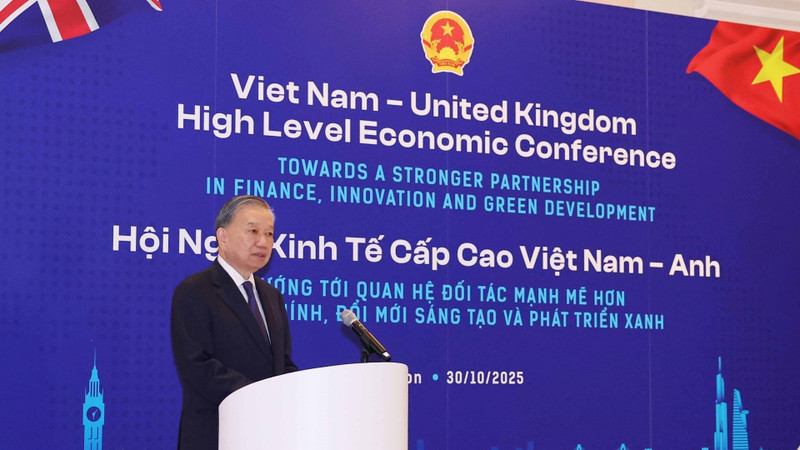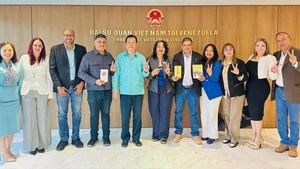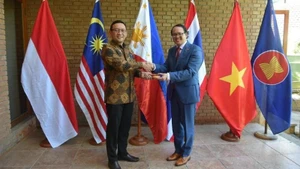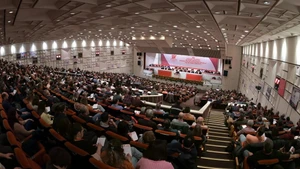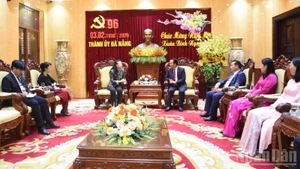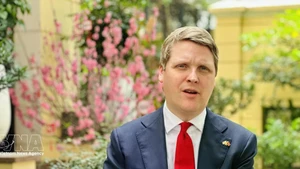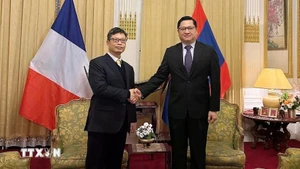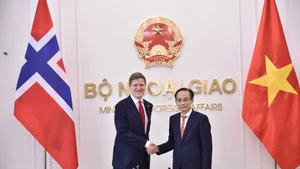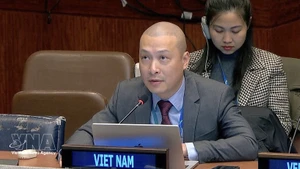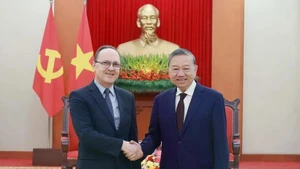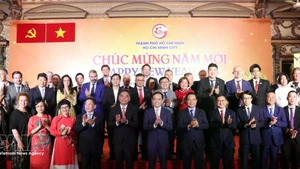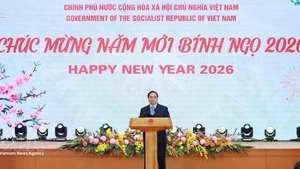Addressing the Viet Nam–UK High-level Economic Conference in London, General Secretary Lam, who is on an official visit to the UK, stressed that through the concerted efforts and determination of the Party, State, people, and business community, Viet Nam has maintained comprehensive stability and strong growth, emerging as a bright spot for fast and sustainable economic development in the region and the world.
He said that Viet Nam is entering a new phase of development with the aspiration to become a developed, high-income nation by 2045, built on three pillars: independence and self-reliance, innovation, and deep international integration. To achieve this, economic growth from 2026 onward must reach at least 10% per year.
While acknowledging that this is an ambitious goal, the Party chief expressed his confidence that it can be realised thanks to Viet Nam’s young, creative, and industrious workforce; its wide network of international partners and markets; and the cooperation of trusted friends, including UK businesses. He underscored that humans are always the centre, the subject, and the goal of all development policies.
The General Secretary reaffirmed Viet Nam’s consistent path toward sustainable development — harmonising economic growth, social progress, and environmental protection. With a foreign policy of independence, self-reliance, diversification and multilateralisation, Viet Nam attaches great importance to relations with the UK, a strategic partner that plays a key role in the global cooperation architecture.
He highlighted that Viet Nam–UK relations have been continually strengthened and expanded, with both sides sharing common values such as peace, respect for law, free trade, and sustainable development. Trade and investment, a key pillar of the bilateral ties, have witnessed remarkable progress, laying a solid foundation for the two countries’ recent decision to elevate their ties to a Comprehensive Strategic Partnership, opening a new chapter in bilateral cooperation.
Regarding cooperation in developing an international financial centre, the Vietnamese Party leader suggested three priority areas: green finance and carbon markets, Fintech and digital banking; and human resource development in international finance.
He emphasised that science, technology, and innovation are identified in Viet Nam’s 10-year socio-economic development strategy for the 2021–2030 period with a vision to 2045 as a strategic breakthrough and a key driver to achieve the goal of becoming a modern industrialised nation by 2030 and a high-income developed country by 2045.
Viet Nam considers the UK one of its most important strategic partners in the fields of science, technology, innovation, and digital transformation. The combination of Viet Nam’s young, creative, and dynamic human resources with the UK’s strengths in technology, research, and governance will create new momentum for bilateral cooperation in the digital era, the Party chief stressed.
General Secretary Lam also emphasised that in the face of climate change and the global energy crisis, green transition and renewable energy development are not only inevitable trends but also the responsibility of today’s generation to the future of humanity. Under Viet Nam’s National Energy Development Strategy to 2030 with a vision to 2045, the country prioritises rapid and sustainable energy development, ecological protection, and climate change adaptation, in line with the goal of achieving net-zero emissions by 2050 and Viet Nam’s commitments made at COP26 and COP28.
He stressed that Viet Nam views renewable energy not merely as an economic sector, but as the foundation for energy security, sustainable development, and a greener future for coming generations. Each cooperation project in this field will deepen Viet Nam–UK relations and affirm that economic growth and environmental protection can and must go hand in hand.
The Party chief requested Vietnamese ministries, sectors, and localities to consider the recommendations made at the conference and actively work with the UK side to translate them into concrete programmes, projects, and cooperation agreements. He encouraged businesses from both countries to become pioneers in innovation cooperation, value chain linkages, and the adoption of ESG standards, thereby promoting green growth, social responsibility, and shared prosperity.
The governments, ministries, and localities of both countries should continue close coordination and provide stronger support for enterprises while fostering a transparent, stable, and enabling investment environment and encouraging partnerships in research, training, and technology transfer, he suggested.
Viet Nam remains committed to accompanying investors, further improving its institutions, and ensuring a transparent, stable, and favourable investment environment for UK companies in particular and the international business community in general while also encouraging Vietnamese enterprises to invest in the UK to make bilateral relations increasingly substantive and sustainable, the General Secretary promised.
At the conference, enterprises, organisations, and experts from both countries discussed practical cooperation opportunities in three key areas: finance, technology, and energy. They agreed that the potential for collaboration between Viet Nam and the UK is vast and entirely achievable with timely mechanisms, policies, and joint efforts, demonstrating the great room and momentum for bilateral cooperation.
